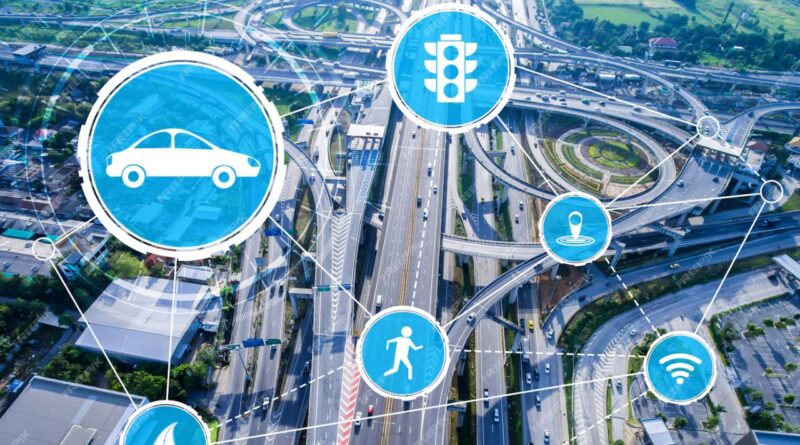Die Zukunft autonomer Fahrzeuge: 7 wichtige Entwicklungen in Europa
Autonomous vehicles are revolutionizing mobility – but how far is Europe? This article shows current progress, technological milestones and political decisions that will pave the way for self-driving cars by 2025.
1. EU Commission launches billion-euro offensive for autonomous technologies
The European Union is driving development forward with a 1 billion euro program (2025-2027). Core projects:
- European Alliance for Connected Vehicles: Pooling resources for common software and chip technologies
- Regulatory sandboxes: test areas with special approvals for innovations
- Pilot projects: Large-scale tests of autonomous shuttles in 15 metropolises by Q3/2025
New flexibility in CO₂ targets: Manufacturers can offset emissions limits over 2025–2027 to accelerate technology developments . However, critics warn of delays in e-mobility infrastructure.
Future platform: The alliance is developing an open software platform for connected vehicles by 2026 that will enable AI-supported route optimization and updates via over-the-air.
2. Technological leap: Level 4 systems reach series production maturity
Current market developments:
| Manufacturer | technology level | area of operation | key innovation |
| Volvo | Level 4 | urban highways | 5G-connected emergency braking assistants |
| VW | Level 3+ | motorways (130 km/h) | AI-based lane keeping algorithms |
| Bosch | Level 4 | logistics centers | Modular sensor stack (Lidar/Radar) |
Breakthrough in sensor fusion: New 5th generation lidar sensors achieve 99.9% object detection accuracy in fog and rain.
Consumer interest:
- 27% of EU citizens would pay up to €10,000 for Level 4 features
- 33% of 18-26 year olds trust autonomous technology
3. Legislation: New EU directive from January 2026
The “Autonomous Vehicle Act” creates legal clarity:
| aspect | EU regulation | UK approach (comparison) |
| Permit | Simplified type approval for Level 4 | Automated Vehicles Act 2024 |
| Liability | manufacturer takeover in case of system errors | insurance requirement for operators |
| data protection | GDPR/Data Act compliance | No specific AI regulation |
Test framework: From 2026, EU-wide harmonized test procedures for public roads will apply, including virtual simulations and real-time monitoring.
4. Acceptance Study: Skepticism vs. Technology Enthusiasm
A Europe-wide survey (2025) shows diverging trends:
| country | readiness for Level 4 | top concerns | Positive expectation (security) |
| Germany | 38% | IT security (67%) | 49% |
| Italy | 64% | costs (53%) | 64% |
| UK | 22% | data protection (76%) | 37% |
Generation gap: While 33% of those under 30 would use autonomous shuttles, the rate drops to 12% for those over 65.
5. Infrastructure Offensive: Smart Cities as Test Laboratories
Europe’s cities set standards:
- Hamburg: 12 autonomous electric shuttles have been serving HafenCity since 2024
- Paris: 30 km of “robo-taxi zones” with 5G networking
- Amsterdam: Nighttime operation of autonomous delivery robots in the canal belt
Key technologies:
- Intelligent traffic lights: Reduce waiting times by 40% via real-time communication
- Dynamic lanes: Motorway sections automatically adapt to the traffic flow
6. Race with Asia: Europe’s niche strategy
Figures from the automotive industry (2025):
| criterion | Europe | China |
| Level 4 vehicles | 95,000 units | 280,000 units |
| R&D investments | 7.8 billion euros | 12.4 billion euros |
| key strength | Regulatory Excellence | mass production |
Europe’s response:
- AI chips: Continental develops neuroprocessors with 500 TOPS computing power
- Public transport integration: 78% of the new buses in Oslo are autonomous electric
7. Ecological synergies: Autonomous e-fleets on the rise
The combination of electric drive and autonomy is having an impact:
- 27% of all new cars in Europe will be electric by 2025
- 40% of them with Level 2+ autonomy
- CO₂ savings: 2.1 million tons/year through optimized routes
Real laboratory Berlin: The TALIS project connects 200 autonomous delivery vehicles with urban micro-depots – reducing delivery traffic by 60% .
Conclusion: Europe focuses on quality rather than quantity
While China leads in mass production, Europe will establish three unique selling points by 2025:
- Security standard ISO 21448: World’s strictest AI certification for decision algorithms
- AI research centers: 15 new facilities specialize in ethical AI development
- Citizen participation: 78% of pilot cities integrate citizen feedback into test phases
The next 24 months will decide whether Europe becomes the global benchmark for safe and sustainable autonomous mobility.




